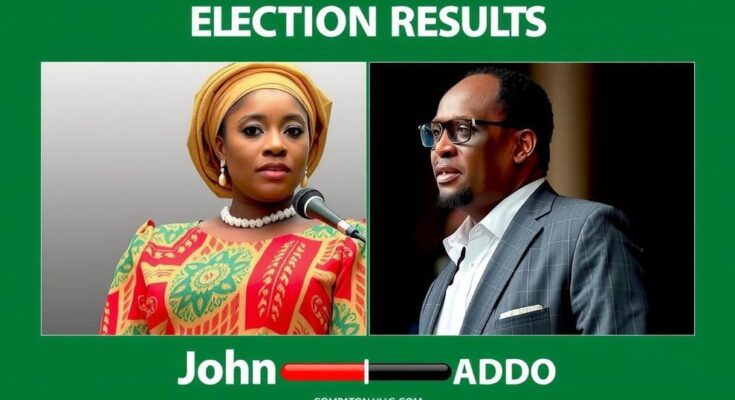Ghana’s 2024 elections resulted in the defeat of the ruling New Patriotic Party (NPP), marking a significant political shift after eight years in power. The NPP’s failure to adequately address the economic crisis, high unemployment, and public dissatisfaction were key factors contributing to their loss. The opposition National Democratic Congress (NDC) claimed victory in critical regions, reflecting rising voter demand for accountability and effective governance.
In a recent election, Ghanaian citizens voted to replace the ruling government, which has been in power for eight years, marking a significant shift in the country’s political landscape. Since the onset of democratic elections in 1992, no ruling party has managed to govern for more than eight years consecutively. The incumbent New Patriotic Party (NPP) aimed to break this trend under the slogan “break the eight.” However, they faced challenges from the opposition National Democratic Congress (NDC), which argued that another term for the NPP would be disastrous due to the country’s economic crisis.
Despite efforts to highlight their achievements, including the implementation of free senior high school education and digitalization initiatives, the NPP government struggled to address pressing issues such as high inflation and unemployment. Prominent political analyst Mussa Dankwah indicated that the state of the economy significantly influenced voter sentiment, with many expressing dissatisfaction over the government’s handling of the economic crisis.
Unemployment rates among young people reached alarming levels, correlating with widespread public frustration that culminated in mass demonstrations against government policies, particularly those related to illegal mining and corruption within the ruling party. The NPP’s grip on parliamentary seats weakened considerably, with several cabinet ministers losing their positions. In contrast, the opposition, led by John Mahama, won decisively in key regions, consolidating their control.
This election follows a broader trend on the African continent, where several ruling parties have recently been ousted, prompting speculation about the implications for future governance in Ghana and the region.
In summary, Ghana’s recent elections signal a pivotal moment marked by economic distress leading to significant political changes. Voter response to governance failures underscores the electorate’s demand for accountability and effective leadership.
The political landscape in Ghana has undergone a significant transformation with the recent 2024 elections resulting in the defeat of the ruling party, the New Patriotic Party (NPP). This shift reflects a broader trend in African politics where ruling parties across the continent have lost elections amidst rising economic concerns, rampant corruption, and calls for improved governance. The NPP, under President Nana Akufo-Addo, was attempting to make history by governing for more than eight consecutive years, but faced fierce opposition from the National Democratic Congress (NDC), which effectively capitalized on public dissatisfaction due to economic hardships.
The 2024 elections in Ghana not only ushered in a new government but also highlighted the urgent need for policy reforms to address deep-rooted economic challenges and public dissatisfaction. As voters prioritize accountability and effective governance, the newly elected leaders must navigate these expectations while restoring faith in the country’s democratic process. The defeat of the NPP serves as a stark reminder of the electorate’s power and the consequences of governance failures.
Original Source: www.bbc.com




